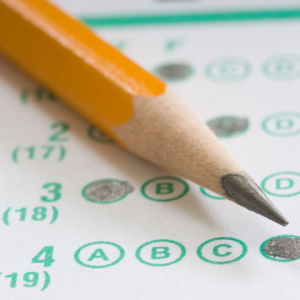Along with flowers and warm weather, spring ushers in standardized tests. Whether you love them or hate them, standardized tests are here to stay. But when used effectively and sparingly, tests can and should be an important tool for improving education.
Over the past two years, testing has become one of the most controversial issues in K-12 education. Valid frustration from parents, teachers, and students boiled over last spring in states like New York and New Jersey, where significant numbers of parents chose to have their students skip required end-of-year tests.
But the start of testing season gives us the opportunity to re-examine the purpose and use of tests. And with this examination, we need to move towards better, fairer, and fewer tests.
That’s why the Center for American Progress, in partnership with National PTA, the National Association of Secondary School Principals, the New York Urban League, and others recently released what we’re calling a Testing Bill of Rights.
The goal in developing this petition was to articulate a set of policies and practices that would reduce the number and improve the quality of standardized tests, and to make testing more useful and less burdensome for students, parents, and educators.
The bill of rights outlines a simple set of common-sense rights with respect to tests for every parent, student, and teacher. So what does it say?
Let’s start with the rights of parents. Parents should know when tests are happening, how long they will take, and how the results will be used. Too often, the only information parents receive about test time is a robocall telling them to feed their children breakfast. Further, parents should get test results in a timely fashion. Oftentimes, parents don’t receive results until six to nine months after the tests are taken, long after their children have moved on to another grade and teacher.
Parents should also be able to compare school test results so they can make informed decisions about where their children go to school. Finally, they should have the right to know if their child is on track to graduate from high school ready to go to college or launch a career.
Next is the rights of students. Some students take as many as 20 standardized tests per year and endure hours of ineffective test prep in place of great teaching. It’s time to end these practices. Students should have the right to have to an education free of excessive test prep and to testing practices and schedules that contribute to meaningful teaching and learning. That means they should not have to take two tests that cover the same material.
And finally is the rights of teachers. Teachers should have the right to timely data that measure what their students have learned, and that help these teachers diagnose student needs and improve instruction. Teachers should have the right to high-quality instructional material, professional development, and the time and support needed to teach and support their students. And they should have the right to accountability systems that judge school and teacher success based on more than just test scores.
The Testing Bill of Rights arrives at a time when some parents are considering opting their children out of required tests. These parents should think twice.
Without an accurate and honest snapshot of every student’s progress toward career and college readiness, many parents and students will be caught off guard when they apply to or start college and learn they aren’t prepared. And without an accurate and honest snapshot of student achievement, parents and system leaders won’t be able to identify excellent schools or schools that need more resources, support, or intervention. Achievement gaps will go unnoticed and kids from disadvantaged backgrounds will lose out.
The bottom line is that in order to ensure that all students are prepared to succeed, we must be able to measure how well they are performing and adjust instruction accordingly. But we can and should dramatically improve testing practices to make tests more valuable for students, parents and teachers alike. Instead of opting out, parents, students and teachers should advocate for the rights outlined above and work together to move toward better, fairer and fewer tests.

